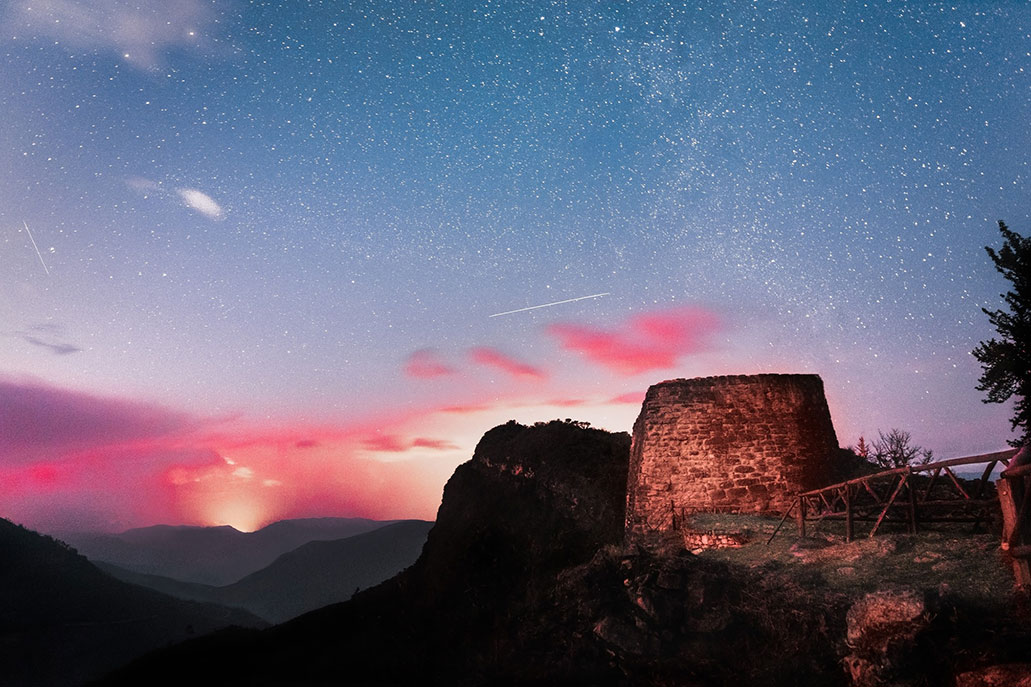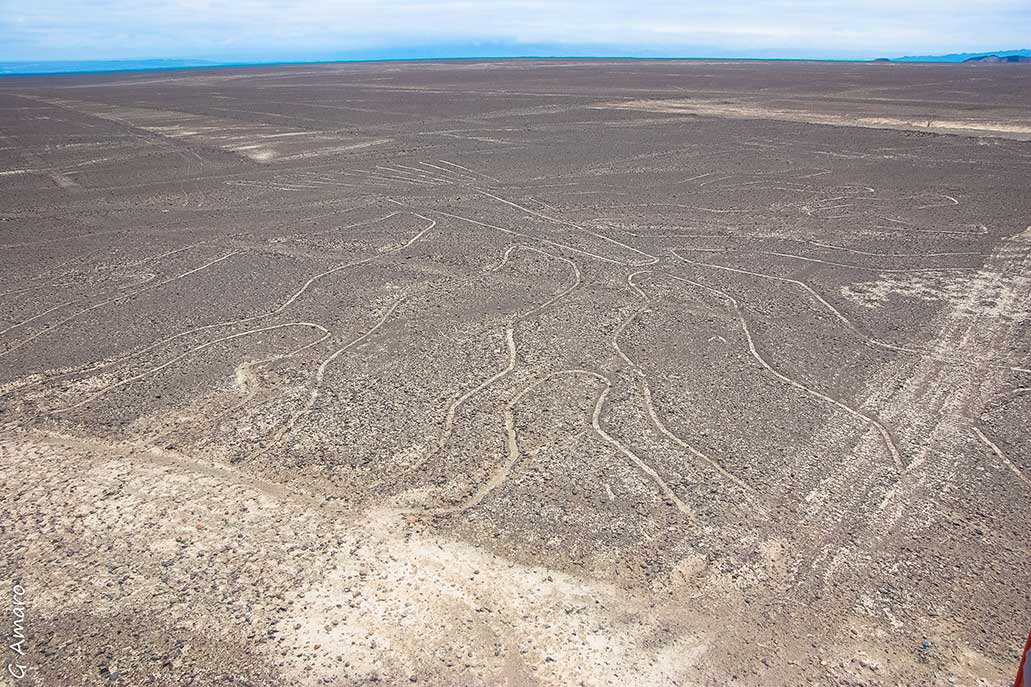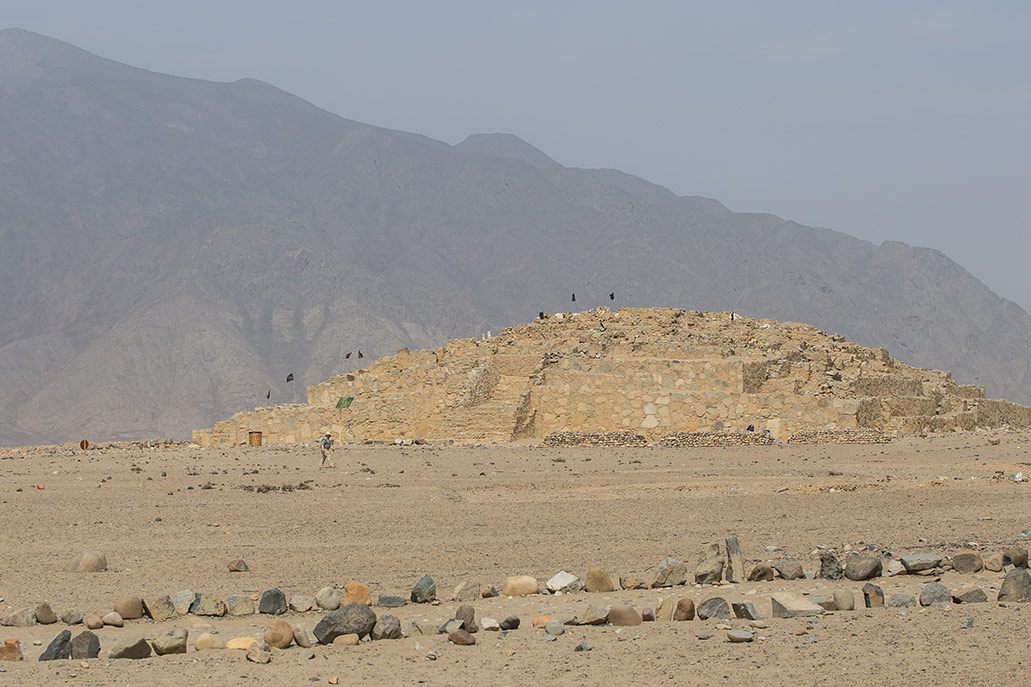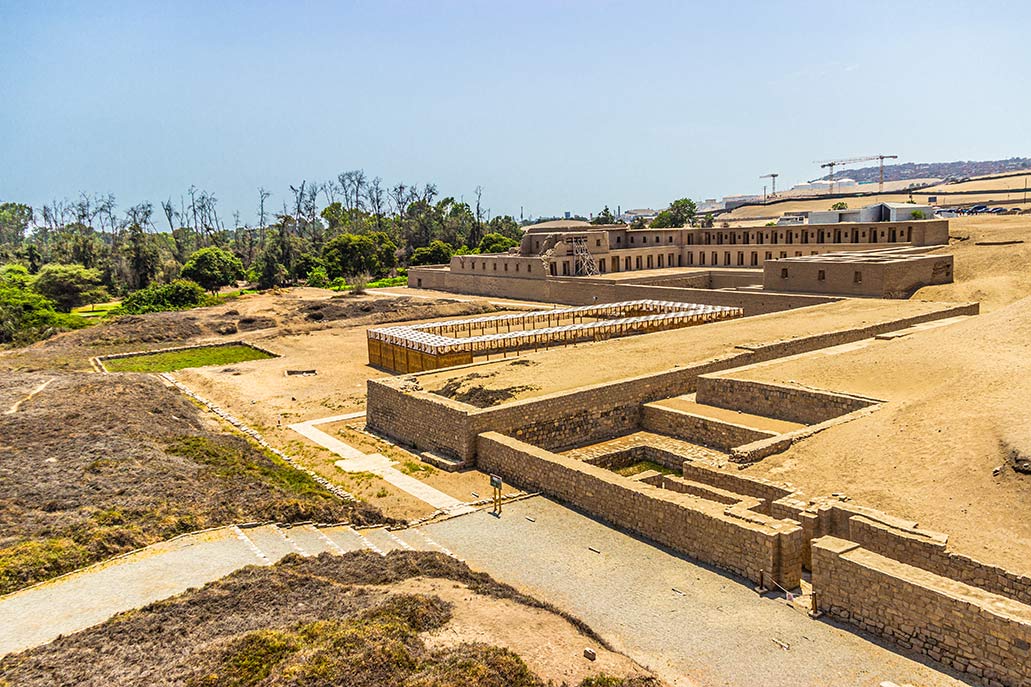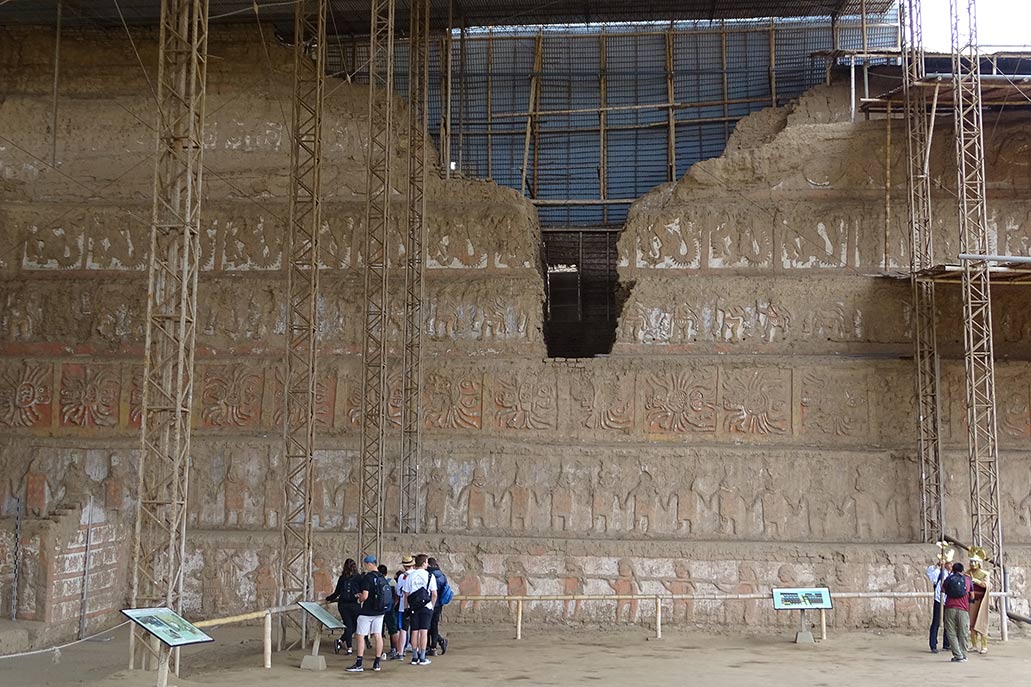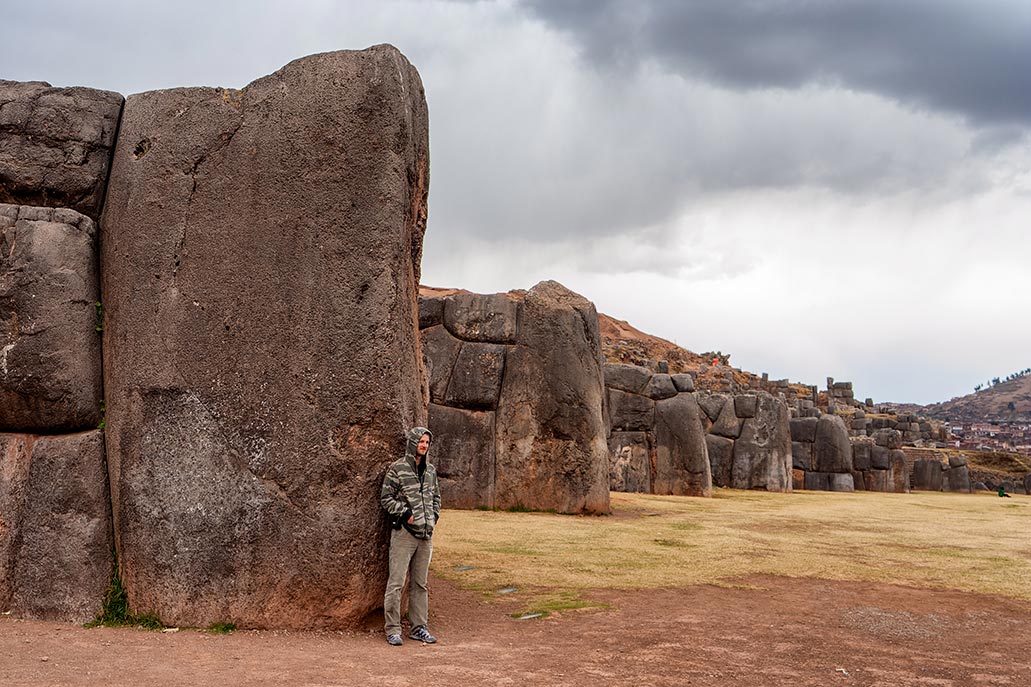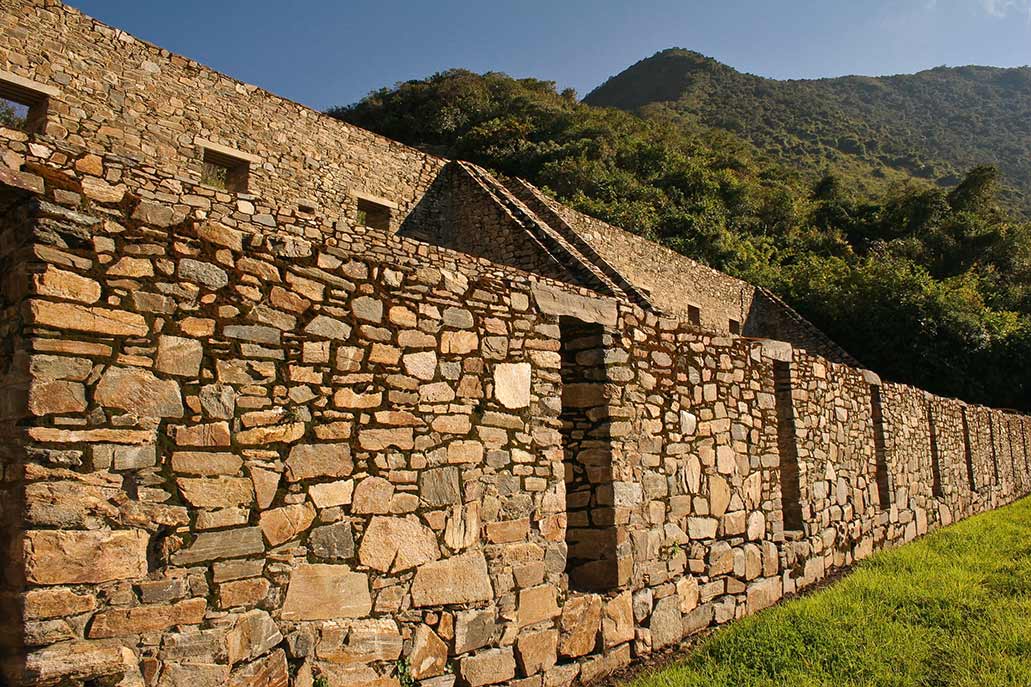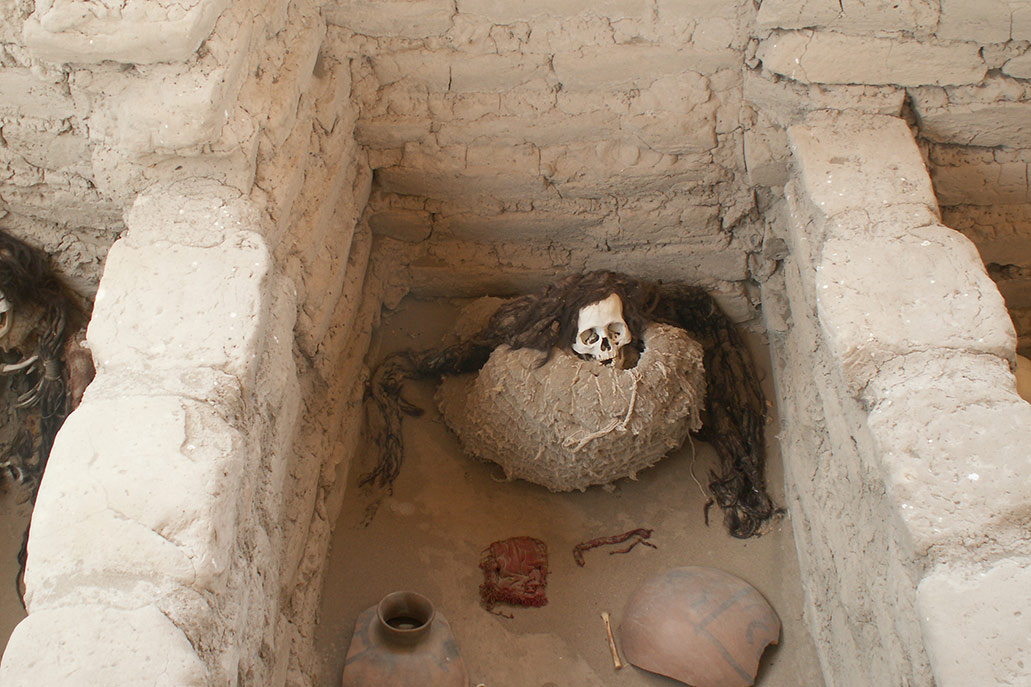The 8 most mysterious archaeological sites in Peru
Peru has a history whose first great civilization dates back to 4 thousand BC. The Caral civilization, the oldest in America, marked the beginning of a long history of civilizations, ceramics, architecture and also many mysteries yet to be discovered. Some of the most enigmatic constructions in Peru are: the Nazca Lines, Pachacamac, the Huaca del Sol y la Luna, Sacsayhuamán, Kuelap and more. Get to know them all!
Content
The mysteries of Machu Picchu – Machupicchu is one of the most visited archaeological sites in Peru and the world. Despite being so well known, there is still pending research work on the Inca citadel. One of its great mysteries is revealing what’s inside the so-called ‘Secret Door’. In 2011, European researchers Thierry Jamin and David Crespy concluded that there is evidence of metal artifacts inside a mysterious cave. Authorities at Machu Picchu have not given the go-ahead for excavations for fear of landslides. What’s inside the Secret Door of Machu Picchu? To this day, this mystery has not been revealed.
Nazca lines
In the coastal desert of Nazca and Palpa in the Ica region, astronomers of the Nazca culture (100 AD – 800 AD) built huge geoglyphs whose function still generates divided opinions today. It is even believed (according to the Swiss scientist Erich Von Daniken) that they were made by extraterrestrial beings. The truth is that to appreciate them it is necessary to fly over the desert in a tourist plane.
The German-Peruvian archaeologist María Reiche (1903-1998) was the one who most and best investigated the Nazca lines. For her it was an astronomical calendar. In a thousand square kilometers, figures were built, among which stand out: the hummingbird, the condor, the monkey, the whale, the spider, the parrot and more. The visit can be made with a tourism agency in Lima or Ica (Full Day tour).
- Location 419 kilometers by road from the city of Lima (South Pan-American Highway). In the district and province of Nazca in the Ica region.
- Visit price The plane tour to the Nazca Lines costs between 80 to 100 dollars depending on the company you hire.
Caral
Caral is considered the oldest civilization in America (3 thousand – 1,900 BC). It is located in the Supe Valley, in the province of Barranca in the Lima region (central coast). It is the first great civilization, which gave rise to the other pre-Inca cultures of Peru over more than three thousand years. Since 2009 it is considered a UNESCO World Heritage Site.
Caral is made up of squares, enclosures, temples, platforms and deposits made of stone and adobe. The investigations carried out by the historian Ruth Shady Solis, found up to twenty five settlements in Caral. However, there are still many aspects to investigate in Caral, such as: the proto-Quechua writing, the absence of ceramics, the presence of the god Huiracocha and more.
- Location 174 kilometers by road from the city of Lima (North Pan-American Highway). In the district of Supe, province of Barranca in the Lima region.
- Visit price National or foreign adult 11 soles, university students 4 soles and schoolchildren (up to 12 years old) 1 sol.
Pachacamac
The archaeological site and historical sanctuary of Pachacamac is located in the south of Lima, 48 kilometers by road. Before and during the Inca period, it was the most important oracle on the coast of ancient Peru. It was part of the Lima, Ychma, Wari and Inca culture. They built constructions such as temples, plazas, pyramids and even an Acllawasi. In the 16th century, the Spanish looted their idols and precious structures.
The Pachacamac sanctuary covers a total area of approximately 465,032 hectares. In its on-site museum you can see a replica of the wooden idol, adored and feared for its supernatural powers (it was even said that it produced earthquakes). The Temple of the Sun, the Temple of the Moon, the Old Temple, the Plaza de los Peregrinos and more stand out. Research continues to reveal mysteries of this important archaeological monument.
- Location 48 kilometers by road from the center of Lima (South Pan-American Highway). In the district of Lurín in Metropolitan Lima.
- Visit price Adults in general 15 soles, university students 4 soles, children and minors 1 sol, as well as adults over 60, 7.50 soles.
Huaca of the Sun and the Moon
The Huacas del Sol y la Luna are a Mochica sanctuary located just 4.9 kilometers from the city of Trujillo on the north coast of Peru. Both temples were the religious center of the Mochica culture between the 1st and 9th centuries AD. One of the theories suggests that the temple of the sun was for political control while the temple of the moon was for religious worship.
The Huaca del Sol is made up of a 43-meter-high building with 4 terraces and a pyramidal structure. The Huaca de la Luna, located half a kilometer from the other huaca, reaches a height of 21 meters. On its highest platform are decorations with human figures. It is presumed that human sacrifices were even performed there. Both can be visited with an all-inclusive tour from the city of Trujillo.
- Location 4.9 kilometers from the city of Trujillo on the north coast of Peru. In the district of Moche, province and region of Trujillo.
- Visit price Adults 10 soles, university students 5 soles, schoolchildren 1 sol.
Sacsayhuaman
Sacsayhuamán is one of the most famous and mysterious archaeological sites in Cusco. It is located 4.1 kilometers from the city center. It was built by the Incas, although its first walls probably predated the Incas. The great mystery of Sacsayhuamán is its walls made with stones weighing up to 120 tons. How did the Incas carve and move such heavy structures?.
Sacsayhuamán is famous for stone structures such as the Main Gate, the Muyumarca (the Cahuide tower), the Sallacmarca, its colcas, slides and chincanas (tunnels). It was a monument of great importance. There the people of Cusco perform ceremonies of great importance such as Inti Raymi (June 24). The visit can be done on your own or with the City Tour Cusco.
- Location 4.1 kilometers by road from the center of the city of Cusco.
- Visit price Cusco Tourist Ticket (70 foreign soles – 40 Peruvian soles) -includes the visit of Qenqo, Pucapucara and Tambomachay-.
Kuelap
Kuélap was a religious sanctuary built by the Chachapoyas culture (800 AD – 1,570 AD). The historical importance and its monumental constructions were investigated. One hypothesis indicates that it was a defense center against the threat of the Wari culture. It covers an area of 65 thousand square meters. Today it is one of the best tourist attractions in Peru. To get there you must take a 20-minute cable car ride.
Kuelap is located in the department of Amazonas, province of Luya. During the Inca period, it was under their control, although, in the 16th century, the Chachapoyas joined the Spanish. Its enormous buildings are located on two superimposed platforms. Its high walls of up to 30 meters stand out. Up to 505 homes have been found there. The Chachapoyas culture still keeps many mysteries for historians.
- Location In the Utcubamba valley, in the district of Tingo, province of Luya and department of Amazonas (the last 20-minute stretch is done by cable car).
- Visit price General adult 30 soles, university students 15 soles, children (up to 12 years old) 2 soles. The round trip cable car costs 23.50 soles.
Choquequirao
Choquequirao is an Inca citadel whose similarity to the Inca citadel earned it the name of ‘The sacred sister of Machu Picchu’. Like the Inca archaeological site, it has roads, enclosures, squares, temples and terraces. Investigations still only managed to excavate thirty percent of the entire area. In other words, there are still many unfinished investigations in Choquequirao.
Choquequirao is located at the top of the Apurímac valley, in the district of Santa Teresa, province of La Convención – Cusco. The difficult geography in which it is found makes it necessary to walk for 2 days (32 kilometers) to get there. Once there, the tourist will be almost alone with Choquequirao. Its kallankas, ushnus, platforms, colcas, enclosures, main square, the Inca cemetery and more are famous.
- Location 32 kilometers on foot from the community of Cachora in the Apurímac valley. It belongs to the district of Santa Teresa, province of La Convención, Cusco region.
- Visit price 60 adult soles. 30 soles for university students and 25 soles for children.
Chauchilla Cemetery
Just 30 kilometers from the city of Nazca (Ica region – Peru) is the Chauchilla market, an immense necropolis built between the 2nd centuries B.C. and IX AD. The cemetery is tangible evidence of ceramic remains, textiles and, above all, mummies in their mortuary environment. Even in some mummies remains of hair and skin can still be seen.
It is presumed that the Chauchilla cemetery belonged to the Nazca culture and the inhabitants who lived there before. It should be noted that it is the only Peruvian archaeological site whose mummies are in their original tombs. The visit can be done on your own or with an all-inclusive tour from Ica or Nazca. There is still much to investigate in Chauchilla, especially its mummies.
- Location 30 kilometers by road from the city of Nazca in the Ica region, on the southern coast of Peru.
- Visit price General admission 8 soles per visitor.
By Machupicchu Terra – Last updated, July 26, 2023
